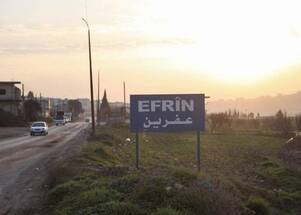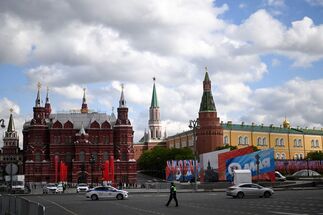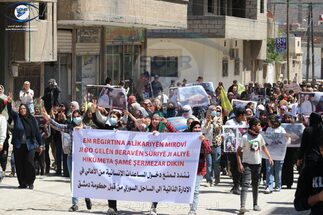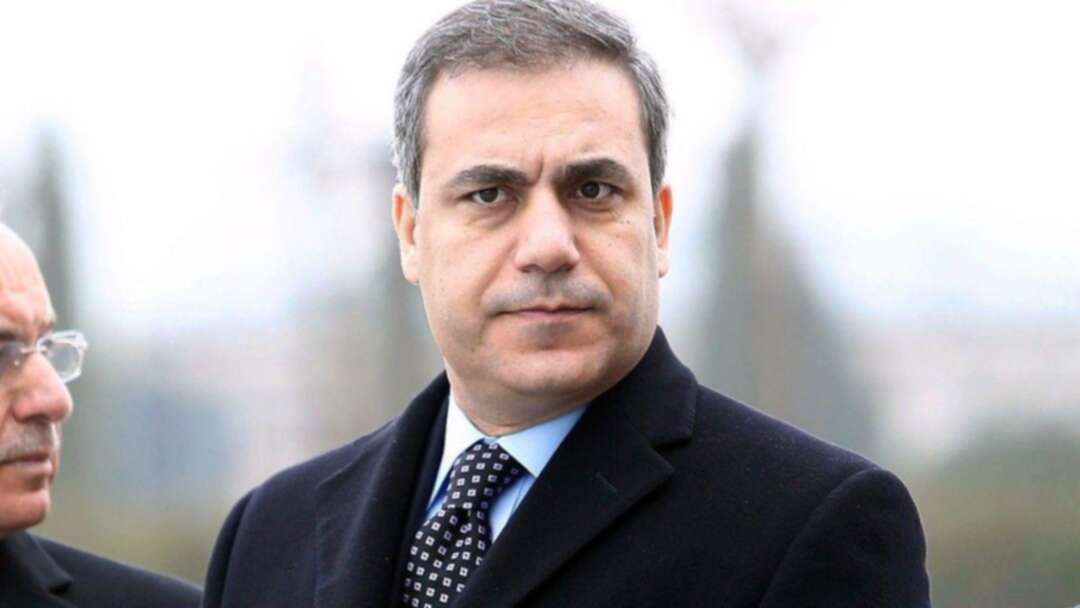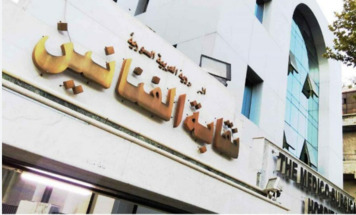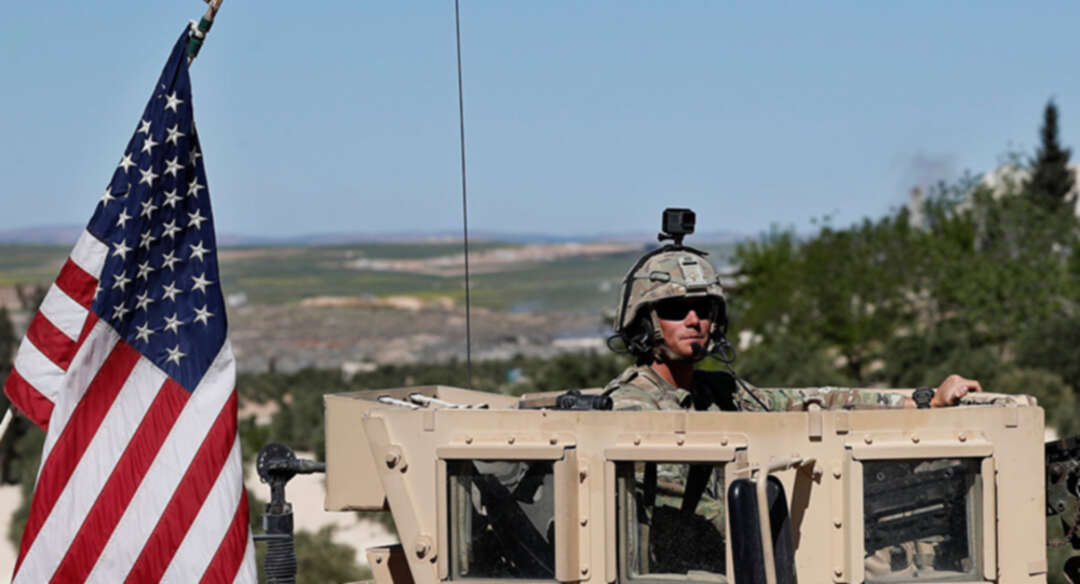-
Legal threat against the Economist shows hostility to press freedom in Lebanon
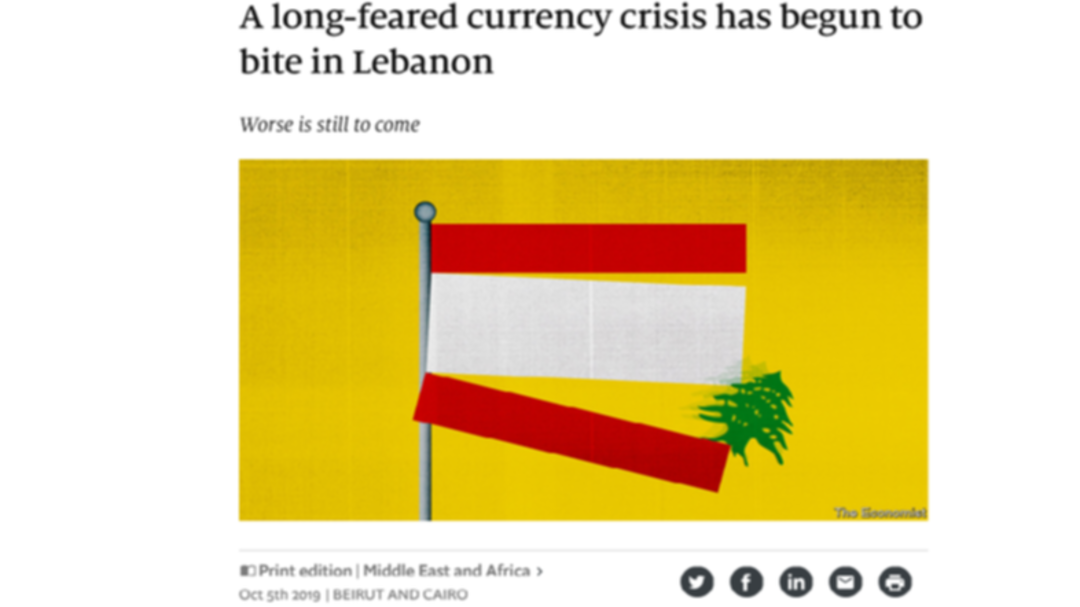
Four lawyers have formally accused an article by the Economist magazine of harming Lebanon’s public interest, as concerns over press freedom in the country continue amid fears of a worsening economic situation.
On Tuesday, the lawyers sent a legal notice to Lebanon’s prosecutor of cassation – the highest civil court reserved for issues deemed to harm public interest – regarding an article in the Economist titled “Broke in Beirut: A long-feared currency crisis has begun to bite in Lebanon.”
The lawyers — Khalil Qabbani, Rami Itani, Mohammad Doughan, and Sana al-Rifai — claim the article damages Lebanon’s reputation. According to another Beirut-based lawyer who knows the four lawyers and asked to remain anonymous, they are members of the “March 14” political alliance, a label which refers to the anti-Syrian regime political coalition led by Prime Minister Sathe Future Movement.
Doughan denied that their actions had political motivations and said the issue was a “national” one.
“What prompted us as lawyers to take action was the abusive exposure of the Lebanese flag, which offends every Lebanese citizen,” Doughan explained to Al Arabiya English.
“In addition, we considered that this article would undermine investor confidence in Lebanon at a time when we need them. It also undermines the state's economic standing,” he added.
Topped by an image of a damaged Lebanese flag in which the country’s national symbol, the cedar tree, is shown sliding off the edge, the article painted a bleak picture of the economy in Lebanon.
“Many ATMs have stopped dispensing dollars. Banks have quietly lowered withdrawal limits to $1,000 a day and imposed arbitrary rules, like banning dollar transactions after 5 p.m. and on weekends, that in effect bar workers from using their accounts,” wrote the Economist on October 5.
Silencing critics
The Economist’s article is the latest in a slew of similar articles and social media posts sparked by fears of a dollar shortage in Lebanon, where the Lebanese pound is pegged to the dollar.
The Lebanese central bank responded to fears by recently introducing a new fiscal mechanism to ensure the country can import wheat, medicine, and fuel at the standard pegged rate.
But the government has also taken a tougher response, threatening imprisonment against anyone spreading “false allegations” about the dollar shortage. The legal action against the Economist is just the latest effort to silence the narrative around the current economic situation.
On September 30, a statement released from Lebanese President Michel Aoun’s office said that “those who broadcast fabricated incidents or false allegations about a decline in the national banknotes to undermine confidence in the state’s robust liquidity and bonds ... will be sentenced between six months to three years in jail with a fine from LBP 500,000 ($331) to LBP 2 million,” according to Article 209 in the penal code.
The president’s office statement highlighted articles in the penal code that make it illegal to undermine confidence in the country’s currency or financial standing, and gave the green light for financial institutions and others to start prosecuting journalists and financial analysts, said Nermine Sibai, a Beirut-based lawyer focused on human rights.
Action has now been taken by multiple Lebanese political groups against journalists and media outlets and does not appear to be confined to one party.
“There is an
Freedom of expression under Lebanese law
Under Article 13 in the Lebanese Constitution, freedom of expression is guaranteed “within the limits prescribed by law.”
Those six words have further stipulations found in the penal code, the press law, the audio-visual law, and the military justice code, according to the 2014 EU-funded Assessment of Media Legislation in Lebanon. A 2018 e-transaction law makes it possible to block certain websites, added Najem.
These restrictions are visible in legislation such as Article 384 of the penal code, which allows imprisonment for six months to two years for insulting the president, flag, or national emblem.
The image of the damaged Lebanese flag and sliding cedar graphic in the Economist’s article could potentially be determined to be a violation of Article 384. According to the statement from the four lawyers, the “magazine’s actions damage the reputation and financial status of the Lebanese state and contempt the Lebanese flag and cedar.”
The lawyers’ statement also requested the magazine be withdrawn from markets, citing Article 50 of the Media Law that stipulates that the Minister of Information may decide to prohibit the entry of any foreign publication to Lebanon and confiscate its issues.
Prior to the Economist legal proceedings, another lawyer in Lebanon recently reported to a public prosecutor and asked that social media be monitored to identify fabricated news sources against the interests of the Lebanese state.
One journalist was brought in for questioning by the Cyber Crimes Bureau, for a tweet saying there were no dollars at a local branch of Societe Generale de Banque au Liban. He was later released after agreeing to delete the tweet.
The Cyber Crimes Bureau was established in 2006 without a legislative decree defining its mandate, according to a 2017 report from Freedom House.
Lack of freedom of expression
This series of events is in line with increased fear of declining freedom of expression in the country.
Lebanon ranks 101 out of 180 on the World Press Freedom Index. According to their analysis, 2018 saw an increase in bloggers and online journalists receiving subpoenas from the Cyber Crimes Bureau.
In 2019, SMEX recorded so far 50 cases of people being detained or questioned by politicians or “powerful entities,“ up from 37 cases in 2018 and 16 or 17 cases in 2017, said Najem. In 2016, there were only six or seven cases. Most posts flagged were critical of politicians, security agencies, or the president.
Najem told Al Arabiya that there has been a clear effort to restrict civil space.
Another group, SKeyes, which monitors media in four Middle East countries, found there to be 62 prosecutions against journalists, artists, and activists in 2018.
When asked whether he was worried if his legal notice against the Economist would stifle press freedom in the country, Doughan replied: “Absolutely no.”
Tags
You May Also Like
Popular Posts
Caricature
BENEFIT Sponsors Gulf Uni...
- April 17, 2025
BENEFIT, the Kingdom’s innovator and leading company in Fintech and electronic financial transactions service, has announced its sponsorship of the “Innovation and Sustainable Technology Solutions Competition (GU - IST Solutions), hosted by Gulf University at its main campus.
This strategic sponsorship reflects BENEFIT’s active role in advancing technological innovation and fostering sustainable solutions to future challenges. It also seeks to empower Bahraini youth by enhancing their skills, capabilities, and competitiveness in innovation and solution development—contributing meaningfully to the broader goals of sustainable development across all sectors.
As part of BENEFIT’s active involvement in the competition, the company has announced that Hanan Abdulla Hasan, Senior Manager of Public Relations and Communication, will serve on the competition’s supervisory committee. Her upcoming participation reflects BENEFIT’s forward-looking commitment to championing academic and professional excellence.
Commenting on the occasion, Hanan Abdulla Hasan, Senior Manager of Public Relations and Communication at BENEFIT, said, “We are privileged to support this pioneering initiative, which aligns seamlessly with BENEFIT’s enduring commitment to fostering innovation and nurturing the potential of Bahrain’s youth. Our participation is rooted in a deep sense of social responsibility and a firm belief in the pivotal role of innovation in shaping a sustainable future. Through such platforms, we seek to empower the next generation with the knowledge, skills, and foresight required to develop impactful solutions that address future challenges, in line with the United Nations Sustainable Development Goals 2030.”
Dr. Aseel Al Ayash Dean of the College of Engineering in Gulf University commented, “We extend our sincere gratitude to BENEFIT for their generous sponsorship and support of the Innovation and Sustainable Technology Solutions Competition. This contribution plays an instrumental role in helping us achieve the strategic goals of this initiative, namely, cultivating a culture of innovation and sustainability, encouraging efforts that address the imperatives of sustainable development, and enhancing the practical and professional capabilities of our students and participants.”
The event will bring together a diverse spectrum of participants, including secondary school students, university undergraduates, engineers, industry professionals, entrepreneurs, academic researchers, and subject matter experts representing a wide range of disciplines.
The competition seeks to inspire participants to develop and present innovative, sustainable technologies aimed at addressing pressing environmental, social, and economic challenges. It encourages the formulation of business models that integrate advanced technological solutions with core principles of sustainability. Moreover, it serves as a platform for emerging leaders, entrepreneurs, and innovators to contribute to the advancement of the Sustainable Development Goals, promote the ethos of responsible technology, and demonstrate its transformative potential across various sectors.
Attendees will have the opportunity to view a series of project presentations submitted by participants, covering diverse areas such as eco-friendly product design, smart and sustainable innovations, renewable energy technologies, water conservation and management, waste minimisation and recycling, green architectural solutions, and sustainable transportation systems. Outstanding projects will be formally recognised and awarded at the conclusion of the event.
opinion
Report
ads
Newsletter
Subscribe to our mailing list to get the new updates!

